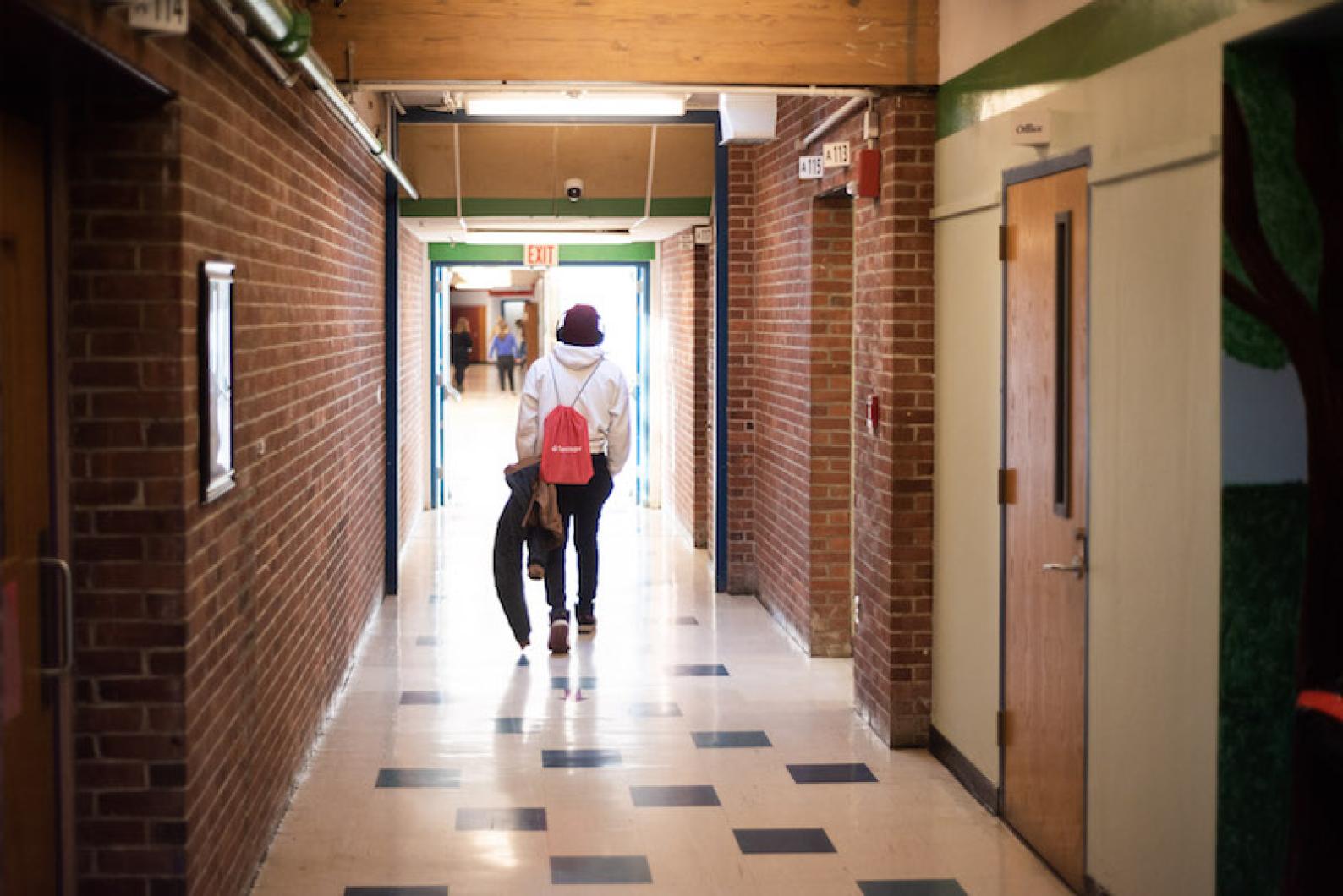The Martha’s Vineyard Regional High School district committee this week certified a $23.5 million operating budget for the 2022 fiscal year, marking a 3.51 per cent increase over last year.
In its fifth and final draft, the budget, which governs education programs at the regional high school, was approved 7-1 at a brisk district committee meeting Monday.
Salary increases for faculty and staff make up the largest portion of the $798,828 increase, with $318,455 in contractual obligations. The total level-service portion of the budget increased by $456,294, two per cent over last year.
The budget also includes money to hire a new ELL (English Language Learner) support position at a cost of $110,000.
As with the up-Island and superintendent’s budgets, an estimated five per cent increase in staff health insurance premiums added $111,611 to the total budget, while a $39,000 increase in property insurance and a $44,373 in net transportation expenses rounded out the increases.
The budget saw minor changes after a presentation at a public hearing on Dec. 22, school business administrator Mark Friedman said. One involves merging the high school’s Covid contingency line with its regular contingency line. Another amends the cost of a feasibility study for a new HVAC system from $75,000 to $60,000.
Mr. Friedman said the changes have had little to no impact on the bottom line.
At the meeting Monday, Kris O’Brien, who chaired the budget subcommittee, praised the efforts to keep increases modest this year. “I wanted to say thank you to the budget subcommittee and the administration for their hard work and due diligence,” Ms. O’Brien said.
There was little other discussion, and the committee voted 7-1 to certify both the operating budget and assessed expenses, with committee member Skipper Manter voting nay.
The six Island towns will be assessed to pay their shares of the budget at their annual town meetings. Under a statutory formula, the assessments are based on student enrollment, with approval needed by at least two-thirds of the Island towns.
School budgets are rarely contested at annual town meetings.
But voters will be asked to pay for other capital expenses at the high school as well this year.
On Monday the committee reviewed four warrant articles totaling $1.2 million that will come before the six Island towns this spring.
The requests include $656,552 to pay for renovations to the school’s tech infrastructure, and $30,000 for a re-shingling project at the superintendent’s office building. A third article, to fund a fleet of electric buses from the Anderson Bus Company, asks for $261,546.
Finally in a shift, voters will be asked to approved an increase of $302,501 to the school’s OPEB (Other Post Employment Benefits) line. The increase marks the first step in a five-year commitment to bolster the retirement line, Ms. O’Brien said.
“It’s important that we make sure that our voters understand that there’s $900,000 in the operating budget and change for OPEB,” she said. “This year, if they choose to increase . . . that’s going to have to happen consecutively for the following four years. I feel as though for me personally, this is an important item to get out to the taxpayers, so they can weigh in on do they want to take on tackling this debt.”
OPEB liability has been a recurring theme issue in every government entity on the Vineyard in recent years, with towns and school districts struggling to put aside enough money to cover their future obligations for retired workers.
The committee voted to approve each of the articles in four separate votes. The first three saw unanimous support, while increases to the OPEB line passed 7-1, with Mr. Manter voting nay.
In other business, the committee heard updates from principal Sara Dingledy on the high school’s hybrid learning plan, which begins next Monday.
Under the plan, students who have chosen in-person instruction will be split into two cohorts, each of which will return to the classroom twice a week, on alternating days. Students in all cohorts will learn remotely on Fridays.
“There’s going to be some flexibility with this because all students are going to be balancing asynchronous and synchronous learning, but this is the plan that gives students the most equity and it presents the most consistency,” Ms. Dingledy said.
An adapted competitive winter sports season will also begin next week for athletes playing basketball, hockey and swimming, school officials said.
Athletic director Mark McCarthy said that unlike the fall — which was strictly intramural — students will compete off-Island with schools in the Cape and Islands League. MIAA games will not run this season, Mr. McCarthy said.
“Our goal is to still try to play all the league games, and have a league tournament at the end of the season . . . because the MIAA has eliminated all MIAA tournaments for the winter season,” he said. Team practices have been running since Dec. 14 and games will begin early next week, he also said.
All 167 students who are playing a sport will be tested weekly under the school’s asymptomatic testing program, said Ms. Dingledy, stressing the importance of continued caution.
“We want to keep our program open and we want to keep our school open,” Ms. Dingledy said.







Comments
Comment policy »